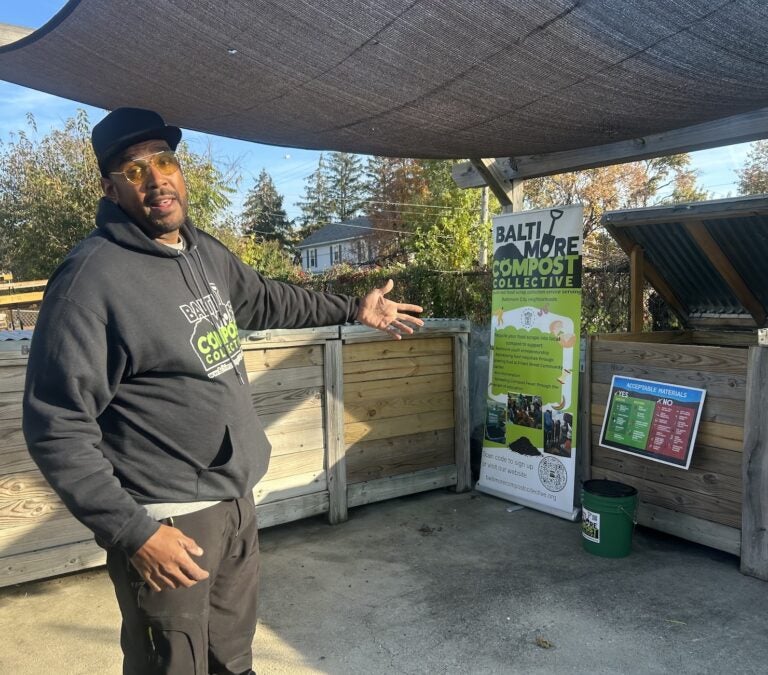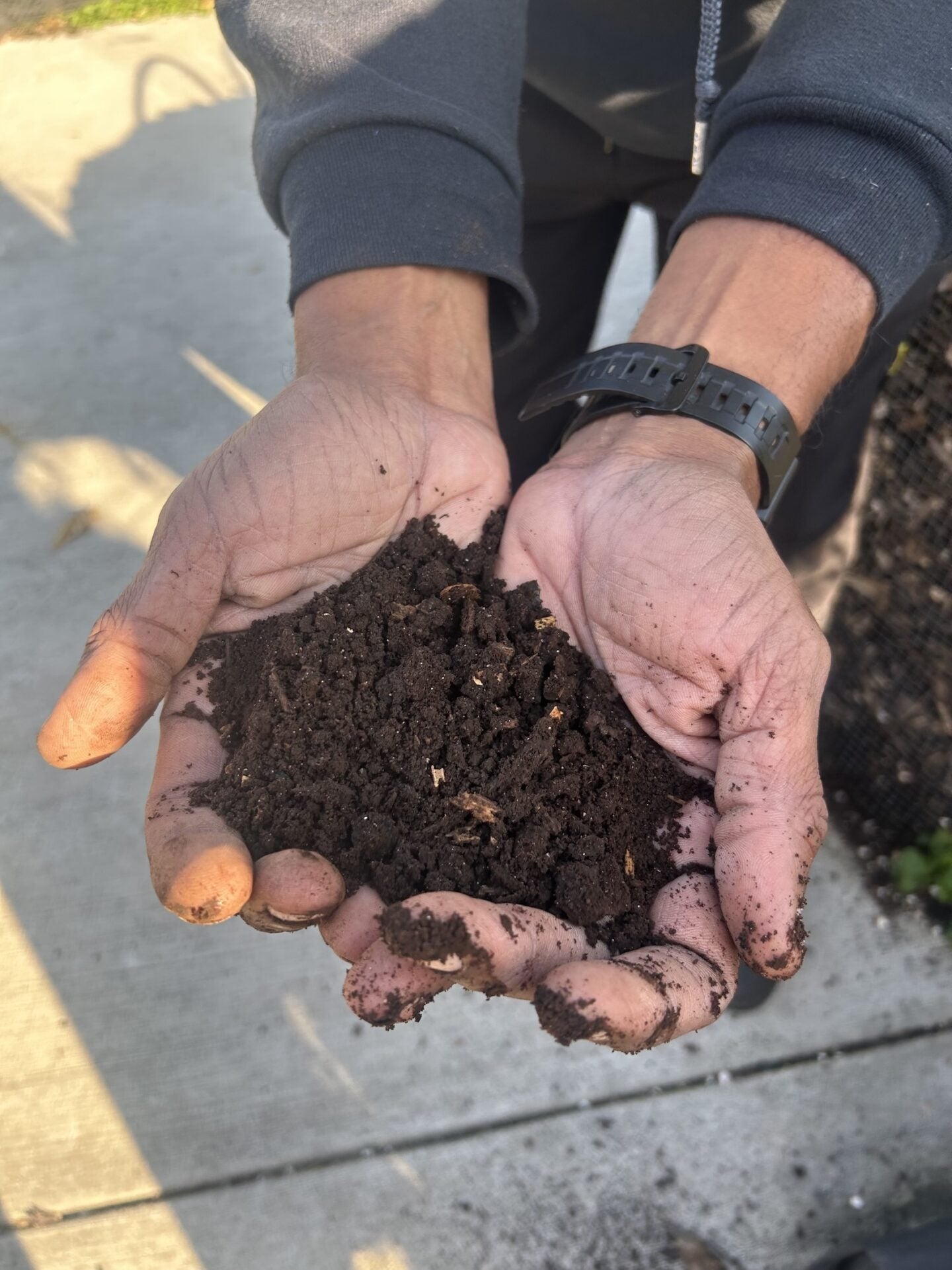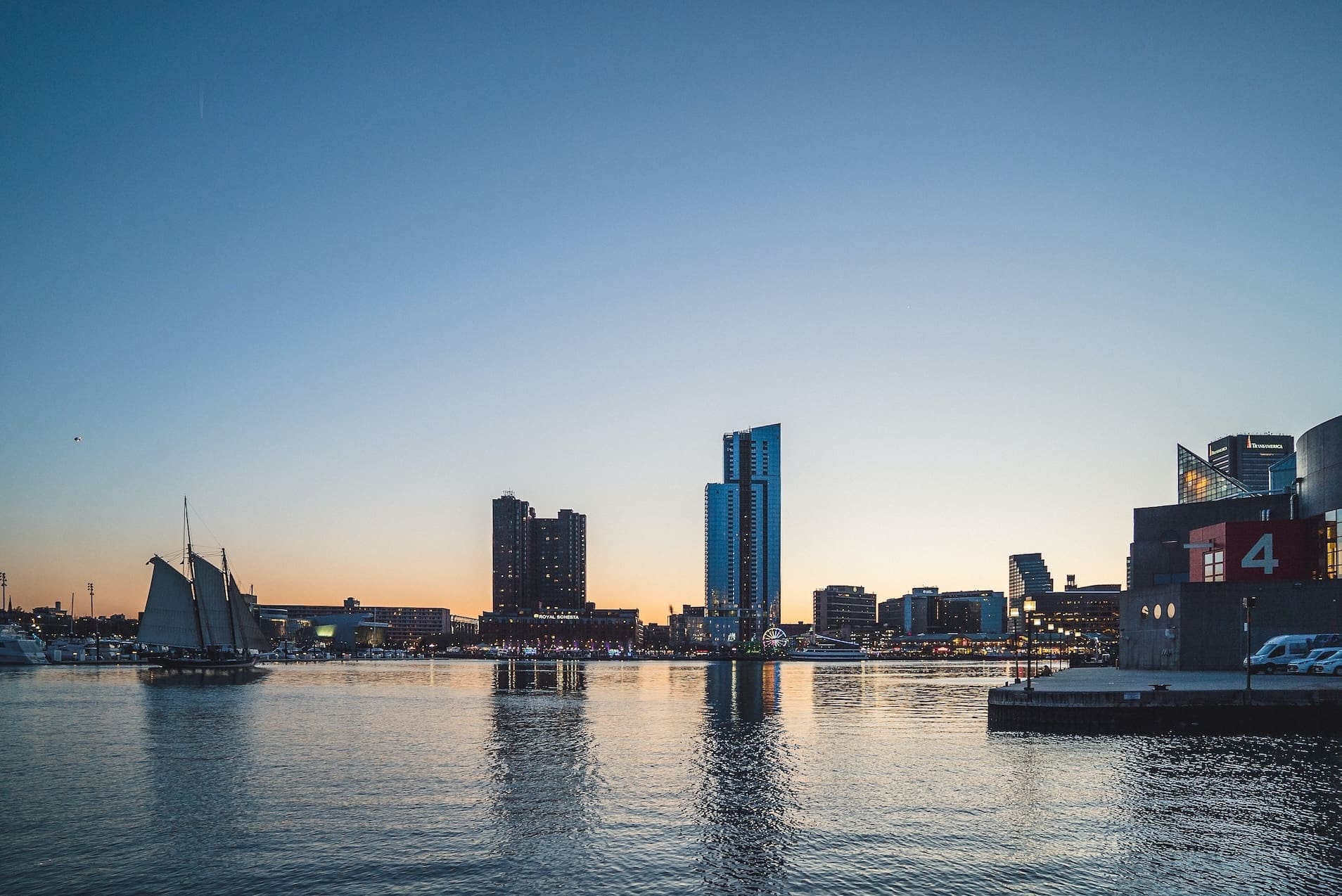Hayes’ Baltimore Compost Collective is part of a quiet revolution that is putting this seaport on the map of leading U.S. composting cities, bolstered by a $4 million Environmental Protection Agency grant awarded this fall to build the nation’s largest municipally managed compost facility.
It contributes to a city-wide food waste and environmental effort that was largely kick-started with a grant from The Rockefeller Foundation to the nonprofit Natural Resources Defense Council (NRDC) through its Food Matters food waste reduction city engagement initiative.
The work was part of the Foundation’s global YieldWise program, which began in 2016 and involved working closely with local officials to demonstrate how the world could halve food loss by 2030, one of the UN’s Sustainable Development Goals.
“The team was amazing and really instrumental in providing technical assistance and that initial investment,” said Baltimore’s Director of Sustainability Ava Richardson, initially hired with YieldWise funds. “Their approach was to make us full partners from the start.”
It’s very satisfying to see the long-term impact and sustainability of this project. Food waste has environmental, social, and economic impacts. Reducing it, as they are in Baltimore, is a powerful action.
Devon KlatellVice President, U.S. Food InitiativeThe Rockefeller Foundation
Collecting the Data
When The Rockefeller Foundation began the work with NRDC, very little data existed on food waste generation in cities. Step One? A fact-finding phase to discover how much food was being lost, and how much additional surplus food could be rescued. The project focused on Nashville, Denver, and New York City.
The NRDC team developed methodologies for estimating food waste generation in various sectors, including schools, businesses, and institutions.
For example, to understand how much food waste the healthcare sector generated, they used per-hospital-bed estimates, and then counted the beds in all of a city’s hospitals. They followed this with bin digs at individual sites to ground-truth their estimates.
“We used a variety of methods, including sector-specific formulas, household surveys, kitchen diaries, and waste audits to deliver actionable data to the cities,” said Yvette Cabrera, who then worked for The Rockefeller Foundation implementing the YieldWise initiative, and now is Director of NRDC’s food waste program.
“We also estimated how much donatable food was not yet being rescued, and was potentially available to communities experiencing food insecurity. This information is invaluable to city leaders,” she said.
Waste data collection has improved in the last five years, but remains tricky, noted Sophia Hosain, Baltimore’s first Zero Waste Manager, initially hired through the NRDC grant from The Rockefeller Foundation. “It varies from residential to institutional to office buildings. And each environment requires tailored solutions.”
Nevertheless, the topline of what they discovered from that initial work remains true today: Food waste is a huge, but solvable, problem.
Food Waste By the Numbers
- 1More than one-third of food intended for human consumption is lost somewhere between food production and dining table. That loss creates greenhouse gas emissions equal to 42 coal-fired plants.
- 2Significant methane emissions also result from food waste rotting in landfills, as it is the single most common material landfilled.
- 3Americans throw out an average of one-third of all food purchased, enough to feed 150 million people each year.
- 4At the same time, 12.8 percent, or 17 million U.S. households, were food insecure at some point during 2022.
- 5Food waste also results in the loss of enough water and energy to supply 50 million homes, and enough agricultural land to cover the area of California and New York combined.
A video from the Natural Resources Defense Council explores their Food Matters initiative aimed at reducing food waste.
Working Directly with City Leaders
By late 2017, the YieldWise project moved into target cities. Having a physical presence was critical to the next steps. “We were able to be deeply engaged with the city,” said Cabrera. “We knew the local partners and the sustainability issues intimately.”
“We created a playbook for cities, illustrating good, better, and best scenarios to reduce food waste,” Cabrera said. “Then another grant from The Rockefeller Foundation allowed us to hire a dedicated fulltime staffer for Baltimore and Denver, two cities we partnered with to work in-depth on food waste reduction. That was key.”
The NRDC team tried to make the work of preventing food waste fun. For instance, in Denver, they held a two-month neighborhood restaurant challenge to see if chefs could reduce their overall food waste.
“We heard anecdotal stories of chefs developing new menu items because they were taking a closer look at their pantry to see what needed to be cooked to avoid waste,” said Madeline Keating, NRDC’s Food Matters initiative lead. They also set up the restaurants with composting contracts.
NRDC has continued and expanded technical assistance partnerships with cities, currently supporting 22 cities to implement specific strategies, goals, and priorities, while running a knowledge-sharing network with more than 30 cities.
Composter Marvin Hayes
We don’t have much time, so we must move fast.
Composting is a member of this supporting cast.
Great for the climate to help reduce harmful greenhouse gas.
In my city, environmental racism is dominant,
but when you add compost to the soil, it sequesters carbon and is so great for the environment.
So if your ear is within my range,
let’s continue to spread compost fever to combat climate change.
– Marvin Hayes

The Baltimore Compost Collective, located on a once-polluted acre of land, now thrives as a community garden complete with 47 individual plots, goats, ducks, and beehives, and more.
Curtis Bay, a mixed industrial/residential neighborhood bordering the Patapsco River, may be Baltimore’s most glaring example of environmental injustice.
It has contended with pollutants from scores of industrial facilities, including two open-air coal pits and the nation’s largest medical incinerator, recently fined $1.75 million for routinely violating state environmental laws. Some 21 percent of the neighborhood population lives below the poverty level.
“It’s an environmental injustice when it happens to just us,” Hayes declares. “Composting is the alternative to burning or burying.”
Begun nine years ago with nine customers, the collective – led by Hayes and youth composter Kenneth Moss – serve 375 households and counting, picking up an average of 2,000 pounds of food scraps a week with an electric-powered van.
Chef Carlos Raba
Composting is, simply put, a way of being a good neighbor, said chef Carlos Raba, co-owner of the Clavel, a family-run taqueria and mezcaleria, and named “best chef” by Baltimore’s City Paper in 2017.
Raba was born and raised in the Mexican state of Sinaloa by his journalist mother and four sisters after his father was killed in a home invasion. He moved to the suburbs of Washington, D.C. at age 17 when his mother, critical of Mexican politics and concerned for her family’s safety, sought asylum with the help of Amnesty International.
He opened his restaurant in a converted industrial space on a street once dominated by dilapidated mechanic garages, and worked to make it cleaner as part of an effort to reduce rats. His ties to his community are clear; behind the restaurant, he runs a non-profit community gym, offering free Brazilian Jiu-jitsu classes to kids.
“As you evolve as a business, you have to evolve as a community member,” he said.
He trains his staff to separate food waste, pays extra to have a composter take it, shares the resulting soil with local sustainable farms. “Owning a restaurant, I say anything that goes in the trash is a waste of money,” he said. “But when that is unavoidable, composting is best.”
Food Rescuer Matt Burke Works for Equity
In the entryway of a medical clinic, a line waits as Matt Burke and a volunteer set up boxes with fruit and vegetables. Burke, the founder and Executive Director of Food Rescue Baltimore, began with a single give-away 12 years ago and now serving 12 locations, recovering 10,000-12,000 pounds of food a week.
A key motivator for the work is improving environmental sustainability. “To me, it’s a no-brainer,” Burke said. “Food rescue is empirically better for the environment. And we run on volunteers, so anyone can get involved in helping the planet.”
Another key goal is improved equity, Burke noted.
“We target food deserts,” he said, “which allows us to provide access to healthy food that otherwise would not have existed and, over time, work to curb some of the disproportionately high cases of food-linked diseases.”
The sustainability work “has to be centered on equity and environmental justice to be most impactful,” said Ava Richardson.
“That requires authentic and meaningful community engagement and power-sharing, and sooner rather than later,” Richardson said. “We cannot ignore the very dire situation we are facing with climate change. We have to see major changes. There are reasons to be optimistic, but time is critical.”
More in this Matter of Impact Edition
Young Climate Activists Reach Across the Aisle To Build Solutions
The young take the lead in building a non-partisan climate movement fit for the future.
Read MoreTiny Emerald Oases Offer Urbanites Sanctuary and Climate Resilience
A retired grocer offered a novel solution to make his corner of Bangkok greener and more walkable. Urban planners were listening.
Read More

